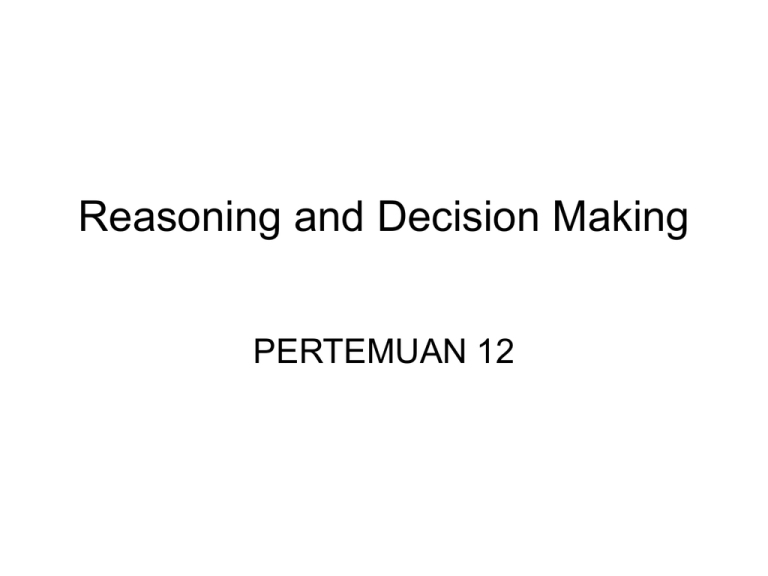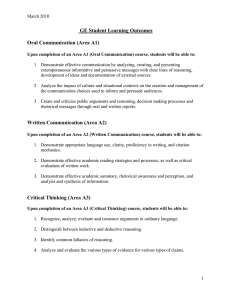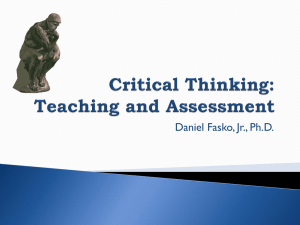Reasoning and Decision Making PERTEMUAN 12
advertisement

Reasoning and Decision Making PERTEMUAN 12 10.1 Mental Models • Mental models • Mental Logic 10.2 Decision Making • • • • • Normative models Probability Heuristics Subjective utility Framing Normative Model • When making a decision such as ‘should I take a coat with me or should I buy an umbrella?’ • we are making a complex set of judgments about the probability of future events (i.e. whether or not it will rain) and the costs and benefits to us of alternatives 10.3 Deductive and Inductive Reasoning There appear to be three main criteria for deciding that an individual is engaging in problem-solving activities (Anderson,1980), and a great variety of tasks meet these: 1 The activities must be goal directed, i.e. the individual attempts to attain a particular end state. 2 The attainment of the goal or solution must involve a sequence of mental processes rather than just one. 3 These processes should be discernibly cognitive. Deductive reasoning • • • • • • Syllogism Content effects Atmosphere Conversion Misinterpretation Figural effect • Research involving deductive reasoning has examined whether conclusions that are drawn from certain premises are indeed logically valid. Inductive Reasoning • • • • Confirmation Bias Selection problem Schematic reasoning 2-4-6 task 10.4 Statistical Reasoning • A further area of research which has shown how ‘error-prone’ our thinking can be has concerned our ability to judge probabilities. • One important rule of thumb is the availability heuristic, whereby judgements are made on the basis of how available relevant examples are in our memory store, in other words the ease with which we can think of instances. • Other research has shown that we may make decisions between alternative possibilities on the basis of which appears more representative, regardless of other information; • representative or typical instances of a category are judged to be more probable than unrepresentative ones. • This representativeness heuristic can explain the gambler’s fallacy, that after a run of losses there will be a good chance of a win. • base rate fallacy. 10.5 Everyday Reasoning • In our daily lives, we are required to draw conclusions or inferences and to make decisions.




